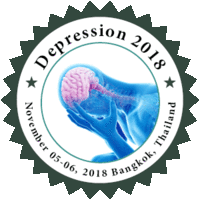
Marycon Anne C Boston
Psychology Instructor, University of the Philippines
Title: Resist the urge: exploring the sources of abstinence self-efficacy of drug rehabilitation residents in Iloilo
Biography
Biography: Marycon Anne C Boston
Abstract
Statement of the Problem: Philippines is now facing a huge problem in eradicating drug addiction and trade. There were an alarming number of drug users who surrendered to the government’s mandate of War on Drugs. Despite the urgency for treatment, surrenderers cannot avail these services because of the lacking facilities and professionals which can aid in their rehabilitation. Another problem is the question on what kinds of interventions the patients should undergo to achieve long-term substance abstinence. Self-efficacy is an important indicator of future performance or outcome in any field. Integrating Albert Bandura’s Self-Efficacy Theory in substance abuse, the current study seeks to identify the factors which contribute to abstinence self-efficacy of illicit drug users.
Methodology: In evaluating the sources of efficacy: history of drug use, social models, verbal persuasion and emotional state, drug surrenderers (n =139) undergoing rehabilitation in the province of Iloilo were administered scales and questionnaires. A Pearson product moment correlation was utilized to examine the predictive relationship of the sources and abstinence efficacy. Interviews and focused group discussions were also conducted to provide an in-depth understanding of the relationship of the variables.
Findings: Results of the quantitative analysis indicated that the four hypothesized sources do not significantly correlate with drug abstinence efficacy. Cognitive appraisal through assessing the difficulty of abstinence, perceived personal control, and the varying interpretation of experiences served as barriers in raising one’s confidence to resist drug use. The physical cravings elicited by drug use also prevented the residents to be positively influenced by external factors. Conclusion and Significance: In order to end addiction, people should develop inner control and willingness to abstain. Thus, by capitalizing on cognitive resources through increasing the number of psychologists and creating person-centered interventions, the treatment facilities can better lead the residents to successful recovery and lifetime abstinence.

